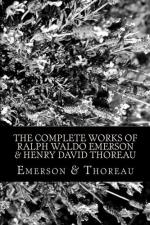|
This section contains 4,857 words (approx. 17 pages at 300 words per page) |

|
SOURCE: Hesford, Walter. “‘Incessant Tragedies’: A Reading of A Week on the Concord and Merrimack Rivers.” ELH 44, no. 3 (fall 1977): 515‐24.
In the following essay, Hesford interprets A Week as a call for faith in response to the incessant tragedies of nature and life.
There are studies of Henry Thoreau's A Week on the Concord and Merrimack Rivers which begin to do justice to its structure, style, and import. Even the most astute and sympathetic critics1 have not, however, accounted, I think, for the power, the impression of the book, perhaps because they are generally preoccupied with its merits as a transcendental document. A Week is Thoreau's impressive attempt to confront the “incessant tragedies” (236)2 which he perceives and in which he participates; through his perceptions and participation, he fulfills his fate. In Walden, Thoreau works his way beyond fate and tragedy, but in his first book he is concerned with...
|
This section contains 4,857 words (approx. 17 pages at 300 words per page) |

|


